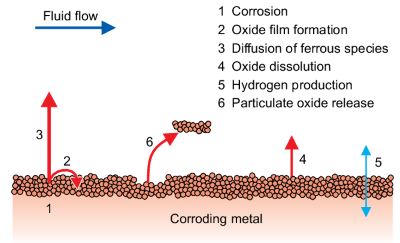
- This event has passed.
Flow Accelerated Corrosion (FAC)
May 6 @ 8:30 am - May 8 @ 4:00 pm
Rp. 7950000

Background & About the Course:
Flow Accelerated Corrosion (FAC) is a prevalent issue in industrial systems where high-velocity fluids erode metallic surfaces, causing accelerated material loss. FAC commonly affects power plants, oil and gas facilities, and chemical processing units, posing risks to structural integrity, operational efficiency, and safety. Unchecked FAC can lead to equipment failure, costly downtime, and severe accidents.
This training provides in-depth knowledge of FAC mechanisms, detection techniques, and mitigation strategies. Participants will gain practical insights to identify and address FAC risks, ensuring the longevity and reliability of industrial systems.
Course Objectives:
- Understand the principles and causes of Flow Accelerated Corrosion.
- Identify systems and operational conditions susceptible to FAC.
- Detect FAC through inspections and non-destructive testing (NDT).
- Develop mitigation strategies, including material selection and system design.
- Implement chemical treatments and water chemistry controls.
- Enhance maintenance planning to reduce downtime and prolong equipment life.
Who Should Attend:
- Engineers and technical staff in power, oil and gas, and chemical industries.
- Maintenance and reliability engineers.
- Corrosion inspectors and quality assurance teams.
- Operations managers and supervisors.
Course Content:
- Introduction to Flow Accelerated Corrosion (FAC):
- Overview and significance in industrial systems
- Common FAC-prone environments
- Mechanisms and Causes of FAC:
- Key factors influencing FAC rates
- Differences between FAC and erosion corrosion
- Diagnosing FAC in Industrial Systems:
- FAC in boilers, turbines, and piping systems
- Inspection techniques and early detection
- Mitigating FAC Risks:
- Design modifications to minimize FAC
- Material selection and coatings
- Single-Phase and Two-Phase FAC:
- Identification and control strategies
- Key Parameters Influencing FAC:
- Temperature, velocity, and pH effects
- Chemical Mitigation Strategies:
- Alkalizing agents and filming amines
- Application of water treatment programs
- Water Chemistry Control:
- Correlation between water quality and FAC rates
- Case Studies and Practical Applications:
- Real-world examples of FAC detection and prevention
- Group discussions and problem-solving exercises
About the Trainer:
Dr. Ir. Tri Wibowo, M. Sc
